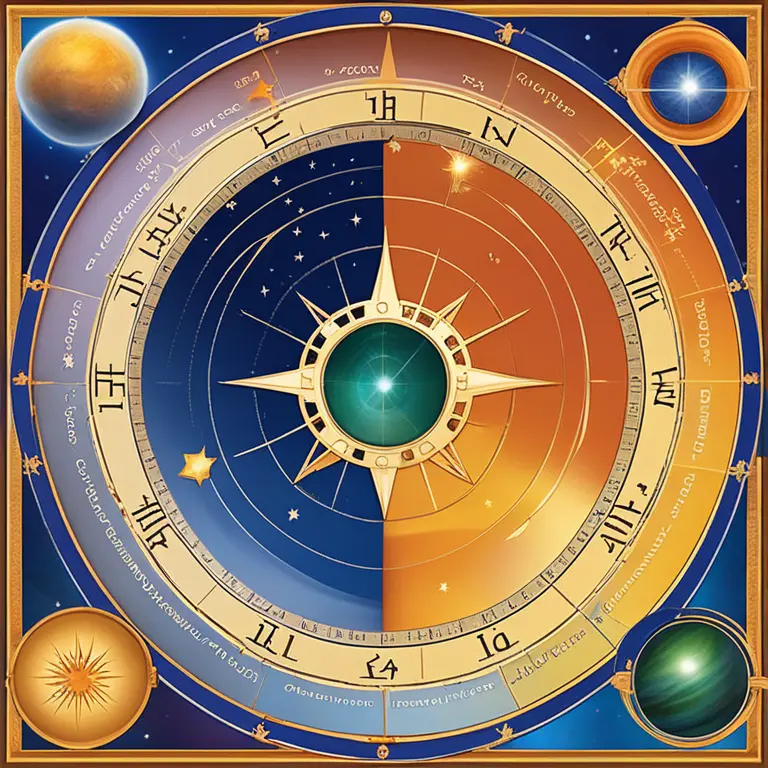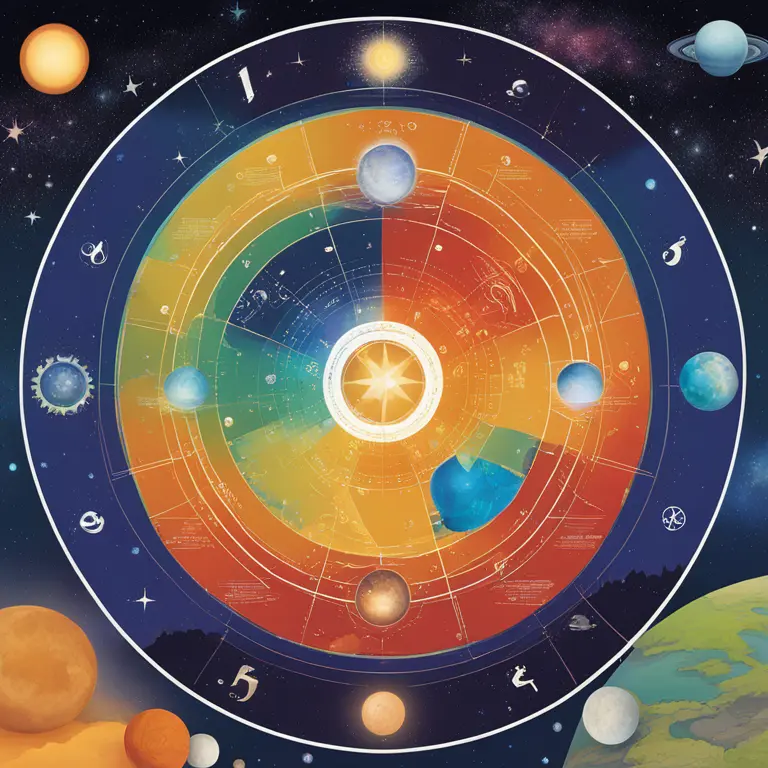
Your Astrology Natal Chart: A Cosmic Blueprint
Dive into the significance of an astrology natal chart and how it reflects your unique celestial imprint at the moment of your birth.
article by Priya Deshmukh
The Essence of a Natal Chart
Understanding your astrology natal chart is akin to having a cosmic map that portrays the positions of the planets and other celestial bodies at the exact moment of your birth. It is not just about your sun sign; a natal chart encapsulates the intricate astrological dynamics that influence your personality, emotions, and life path. The chart is divided into twelve houses, each representing different aspects of life, and is uniquely yours - no two charts are identical, just as no two lives are the same.

Key Components of Natal Astrology
A natal chart consists of several key elements: planets, zodiac signs, houses, and aspects. The planets represent different facets of your being, such as Mercury for communication or Mars for drive. Zodiac signs provide a backdrop to the planets' positions, adding distinct characteristics and flavors to each planetary influence. Houses denote life areas where these energies manifest and as they move through the signs, they angularly relate to each other, forming what are known as 'aspects,' which denote the relationships between different parts of your personality and experience.

Planets and Personal Growth
Your natal planets are not static; they provide a foundation upon which you can build and grow. The transits of the planets as they continue to move post-birth can activate different areas of your natal chart, symbolizing phases of development, challenges, and opportunities. Understanding the energies of your natal planets can guide you in making more informed decisions and recognizing your innate potential and propensity for certain experiences.

The Zodiac and Self-Expression
The twelve zodiac signs in your chart play a critical role in shaping how you express the energies of your planets. They filter these energies in ways that are consistent with their nature, such as Aries bringing forth courage and impulsivity, while Cancer might expose more nurturing and protective tendencies. This celestial layer adds nuance and texture to your overall personality makeup and destiny.
Houses: The Stage of Your Life
The houses in your astrology natal chart are the "stages" upon which the "actors" (planets) play out their roles. The first house concerns your identity and appearance, while the tenth might denote your career and public status. By studying which planets reside or interact with specific houses, one can gain profound insights into the various life domains and how best to navigate them.
Interpreting Aspects for Insight
Aspects in a natal chart describe the angle at which planets sit relative to one another, offering clues to the nature of their relationship—whether they're in harmony or at odds. Trines and sextiles typically indicate talents and ease, whereas squares and oppositions might highlight tensions and areas of growth. Learning to work with the more challenging aspects can lead to tremendous personal development and wisdom.
Modern Astrology and Your Natal Chart
Contemporary astrology incorporates psychological nuances and societal progress, augmenting traditional interpretations. Today, there's an emphasis on free will and how you utilize your chart's potentials, not just predetermined fate. Your astrology natal chart is a starting point for self-exploration and personal evolution, providing a reflective tool to assist you in understanding yourself and the world around you more deeply as you move through life.
Published: 2/13/2024
Modified: 2/13/2024
More predictions
Come back here soon to learn more about yourself and your future


Mastering Tarot Basics: A Beginner’s Guide
Embark on a journey into the art of tarot reading with our beginner’s guide, covering fundamental concepts and practical how-to steps.


Crafting Inquiry: Top Tarot Questions to Ask
Discover the right questions to pose during a tarot reading to gain profound insights into your life's direction and decisions.


The Tarot Card Deck: A Gateway to Mystical Insights
Discover the tarot deck's rich symbolism and its role in personal growth and foresight. An insightful guide to the power of tarot cards.